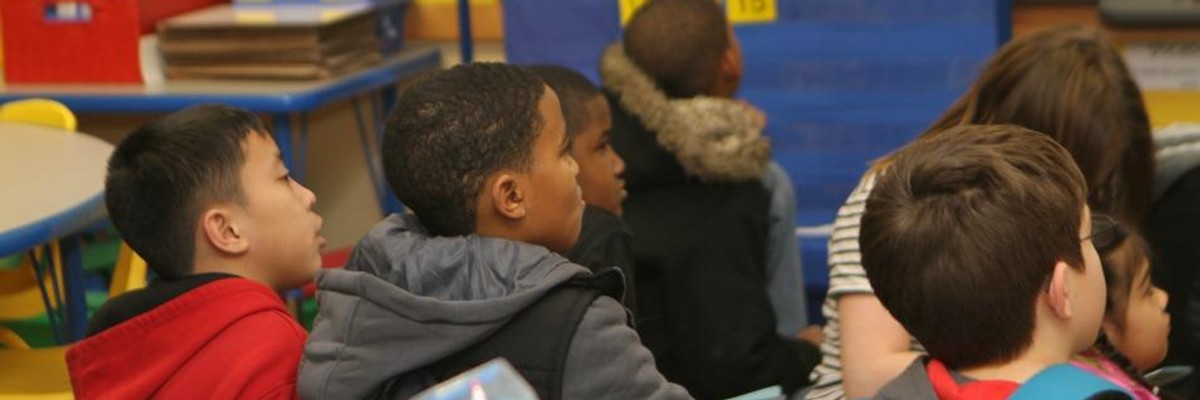A new federal report confirms that disparities in how children are disciplined in American persist across the nation--regardless of whether their schools are in low- or high-income areas.
Black students, boys, and students with disabilities were all found to be punished with suspension, expulsion, and referrals to the police more frequently than their counterparts, according to the nonpartisan Government Accountability Office's (GAO) first investigation into the issue, which has been reported by other groups in the past. The study used data regarding 95,000 schools compiled in the federal Civil Rights Data Collection.
The disparities were seen at a multitude of schools "regardless of the type of disciplinary action, regardless of the level of school poverty, and regardless of the type of public school attended," Jacqueline Nowicki, the lead researcher in the study, toldNPR.
"The idea that discipline disparities transcend poverty is something that is pretty important and has not been understood in that way before." --Jacqueline Nowicki, GAO
Racial discrimination appears to be a leading reason for the disproportionate punishment of black students. While about 15.5 percent of American school children are black, they make up 39 percent of students who are suspended from school. The stark disparity corresponds troublingly with that which is found in the prison system, where nearly 38 percent of inmates are black.
The GAO's report appears to debunk the belief that black students are more harshly punished because they are more likely to live in low-income households than white children, therefore facing the stressors of poverty which can in turn cause students to act out.
"The idea that discipline disparities transcend poverty is something that is pretty important and has not been understood in that way before," Nowicki told NPR.
The report "dispels claims that racially disproportionate rates of discipline are based solely on income," Rep. Bobby Scott (D-Va.) said in a statement. "The analysis shows that students of color suffer harsher discipline for lesser offenses than their white peers and that racial bias is a driver of discipline disparities."
The report comes as Education Secretary Betsy DeVos considers whether to rescind 2014 guidance released by President Barack Obama, in which schools were advised to ensure that their students were not discriminated when punishments are handed out--or risk being found in violation of civil rights laws.
"Secretary DeVos and the Department of Education must ensure that the necessary resources and guidelines are in place to address these disturbing racial disparities in our schools, and I hope this report will provide the necessary urgency for quick action on this matter," said Rep. Jerrold Nadler (D-N.Y.) in a statement.

